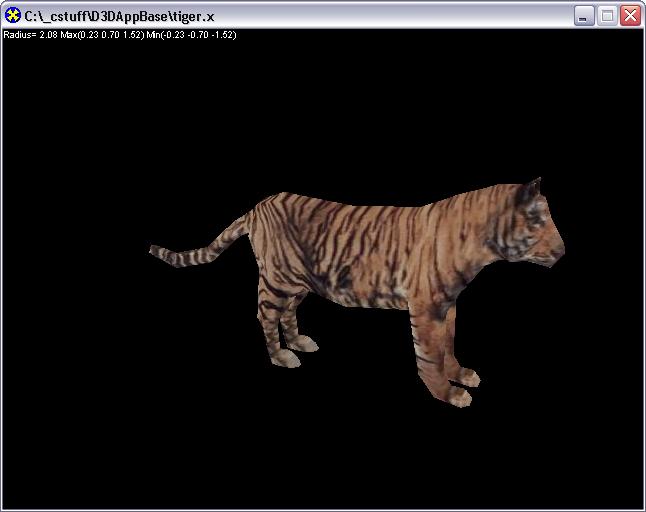|
D3DAppBaseFiles.zip - Zip file with the library C++ and header files
This is the D3DAppBase class library for C++. It consists of four different sections:
-
D3DAppBase.cpp/.h - The Direct3D class library, contains classes for manipulating meshes, managing resources,
effects like billboards and particles, and a base class for applications classes to extend.
-
DIBase.cpp/.h - Simple DirectInput class that handles immediate keyboard and mouse data, and can load a joystick or other
peripheral.
-
DMBase.cpp/.h - Simple DirectMusic classes for managing and playing sound segments, and for 3D positional audio paths.
-
DXUtil.cpp/.h - Utility functions mostly from the DirectX SDK, plus my own functions and macros that the above files all use.
To see how to setup a project to use DirectX in, look at the examples I've provided. Make sure if you're using .NET that
you compile with managed extensions turned off. I always have precompiled headers turned off as well, but other than the
external dependencies my projects are more or less like the default Win32 project that Visual Studio coughs up.
Your project configuration should include these as external/additional dependencies however:
dxerr8.lib
dinput8.lib
d3dxof.lib
dxguid.lib
d3dx8dt.lib
winmm.lib
d3dx8.lib
d3d8.lib
kernel32.lib
user32.lib
oleaut32.lib
ole32.lib
gdi32.lib
advapi32.lib
D3DAppBase.zip - Zip file with a simple demonstration app.
I used this to write the library with, so the source is a bit of a mess. It requires that you download and extract the main
library zip file above into the same directory that you extracted this zip file to. The source for the actual program is in
app.cpp, like it is for the following example programs too. All the program does is produce a particle fountain and play
sound segments through various audio paths, though comes with a few x files and other media as well.
The following are sample programs/utilities I wrote with the D3DAppBase class library:
D3DXViewer


Click to see screen shot
D3DXViewer.zip - Zip file with X file viewer.
This is a simple app for previewing a model in Microsoft X file format (see SDK documentation). All of the code for doing this
is in app.cpp which makes use of a number of library classes. The file is specified through the command line so it can be used
as a file association. It also requires the library zip file be extracted into its directory.
D3DDDSViewer


Click to see screen shot
D3DDDSViewer.zip - Zip file with DDS file viewer.
This is a simpler viewer for DDS texture files. These files can be in all sorts of pixel formats, contain MIP chains, cube and
volume maps, and are an easy way to get texture into an app. All of the code for doing this is in app.cpp which makes use of a
number of library classes. The file is specified through the command line so it can be used as a file association. It also
requires the library zip file be extracted into its directory.
D3DMD2Viewer



Click to see screen shot
D3DMD2Viewer.zip - Zip file with MD2 file viewer.
This is a simpler viewer for MD2 animated model files. MD2 is the Quake 2 animation format, which is just a sequence of mesh frames
as opposed to skeletal animation or the like. It's a simple file format and is simple to use with the provided MD2ModelObject class.
All of the code for doing this is in app.cpp which makes use of a number of library classes. The file is specified through the
command line so it can be used as a file association. It also requires the library zip file be extracted into its directory.
|
 Eric's DirectX Page
Eric's DirectX Page
 Eric's DirectX Page
Eric's DirectX Page
